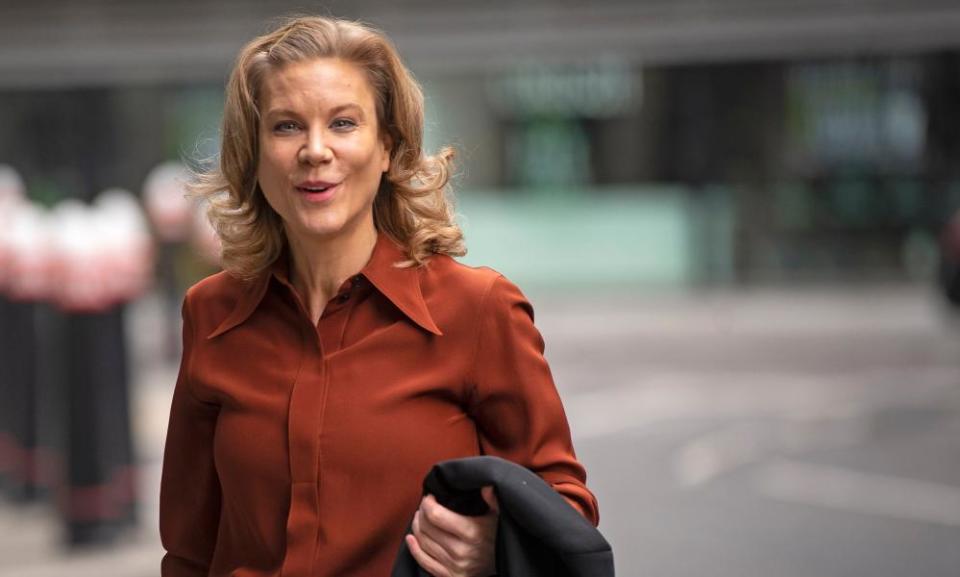Barclays bosses wrote Amanda Staveley off as 'dolly bird', court told

A high profile businesswoman suing Barclays for £1.5bn over the terms of an emergency cash call in 2008 was called a “dolly bird” and a “tart” by top bank executives according to documents presented to the high court on Thursday.
The terms used to describe Amanda Staveley were revealed in telephone transcripts allegedly detailing a conversation between Barclays’ former investment banking chief Roger Jenkins and the bank’s former head of European financial institutions division Richard Boath in October 2008.
“Now that dolly bird… that represents – is it – what’s her name?” Boath asked, according to the transcript. “Amanda Staveley,” Jenkins said. Jenkins later added: “I can handle dolly birds.”
Staveley, who recently brokered the potential takeover of the Premier League football club Newcastle United, also came up later in the telephone conversation. “I was going to call the tart,” Jenkins said. “Who’s the tart?” Boath asked. “Amanda,” Jenkins replied.
Staveley is suing Barclays for up to £1.5bn after her client, Sheikh Mansour bin Zayed Al Nahyan of Abu Dhabi, invested £3.25bn as part of an £11bn emergency fundraising by Barclays at the height of the 2008 financial crisis.
The businesswoman claims that Barclays secretly offered better terms to Qatari investors, which meant her firm – PCP Capital Partners – missed out on higher advisory fees than the £30m it actually received.
Barclays is disputing claim and has described the case as “opportunistic and speculative”. The bank’s lawyers have also suggested that Staveley exaggerated the importance of her role in securing billions of pounds for the Barclays rescue package.
Sexist remarks made by senior Barclays bankers about Staveley during the 2008 cash call have already forced a senior bank lobbyist to resign. Stephen Jones stepped down as chief executive of bank lobby group UK Finance in June, weeks before his comments were due to be revealed in the high court.
Jones, who was a Barclays executive during the financial crisis, said he apologised to Staveley and the lobby group over the comments, which were made as the bank scrambled to avoid a public bailout that would have placed it under government control in 2008. Jones’ comments are expected to be revealed when he takes the stand later this month.
Court documents previously submitted by PCP Capital Partners said: “A significant theme of Barclays’ evidence in these proceedings is concerned with seeking to criticise the professional skill and competence of Ms Staveley. This is regrettably consistent with some attitudes – reflected in some deeply unpleasant personal comments about her – professed by some of Barclays’ most senior staff at the time.”
The court hearing follows a criminal case, in which three former Barclays bosses, including Jenkins and Boath, were cleared of fraud over the terms of the Qatari deal in 2008.
The Serious Fraud Office had accused the former executives of devising fraudulent advisory services agreements in order to disguise payments worth £322m to Qatar from the market and other investors. The trio were acquitted by a jury in February.
• Sign up to the daily Business Today email here or follow Guardian Business on Twitter at @BusinessDesk.

 Yahoo Finance
Yahoo Finance 